| Article ID | Journal | Published Year | Pages | File Type |
|---|---|---|---|---|
| 916192 | Revista Internacional de Andrología | 2007 | 10 Pages |
Abstract
The integrity of the paternal genome is of paramount importance in the initiation and maintenance of a viable pregnancy in vivo and in vitro. The presence in the embryonic genome of DNA strand breaks and/or modifications in DNA nucleotides originating in the paternal genome, which have not been repaired by the oocyte after fertilization, is not compatible with normal embryo and fetal development. DNA fragmentation in human spermatozoa has recently been shown to be a potential cause of unexplained infertility. In this review, the mechanisms responsible for DNA fragmentation in human sperm are discussed. These mechanisms include apoptosis in the seminiferous tubule epithelium, defects in chromatin remodeling during the process of spermiogenesis, reactive oxygen species (ROS)-induced DNA damage during sperm migration from the seminiferous tubules to the epididymis, activation of sperm caspases and endonucleases, and damage induced by chemo- and radiotherapy. In addition, the various tests used to determine DNA fragmentation in human sperm and their clinical applications in the diagnosis and treatment of infertility are described.
Keywords
Related Topics
Health Sciences
Medicine and Dentistry
Surgery
Authors
Juan G. Álvarez,
